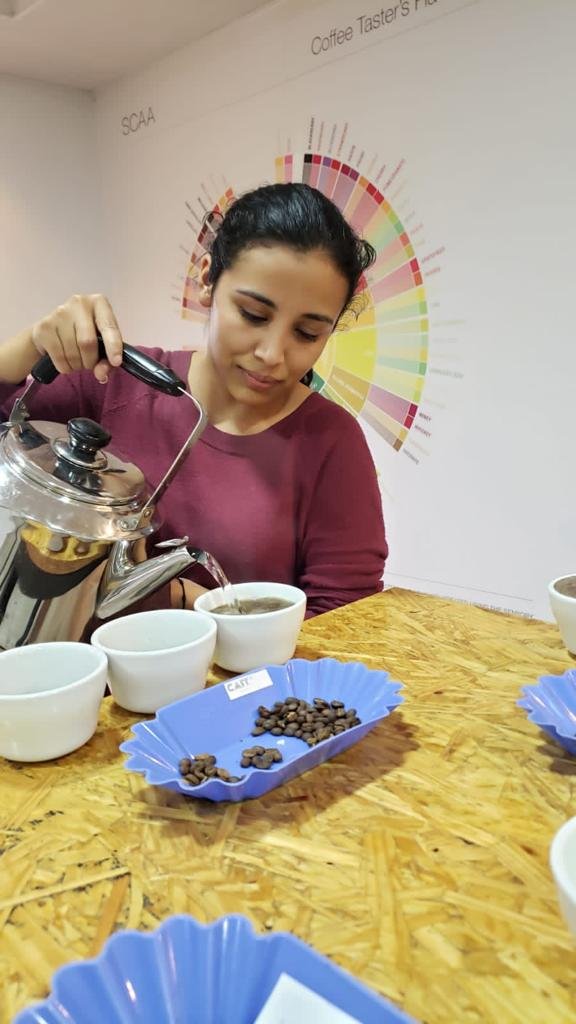Idalia Josselin Santamaría Rivera
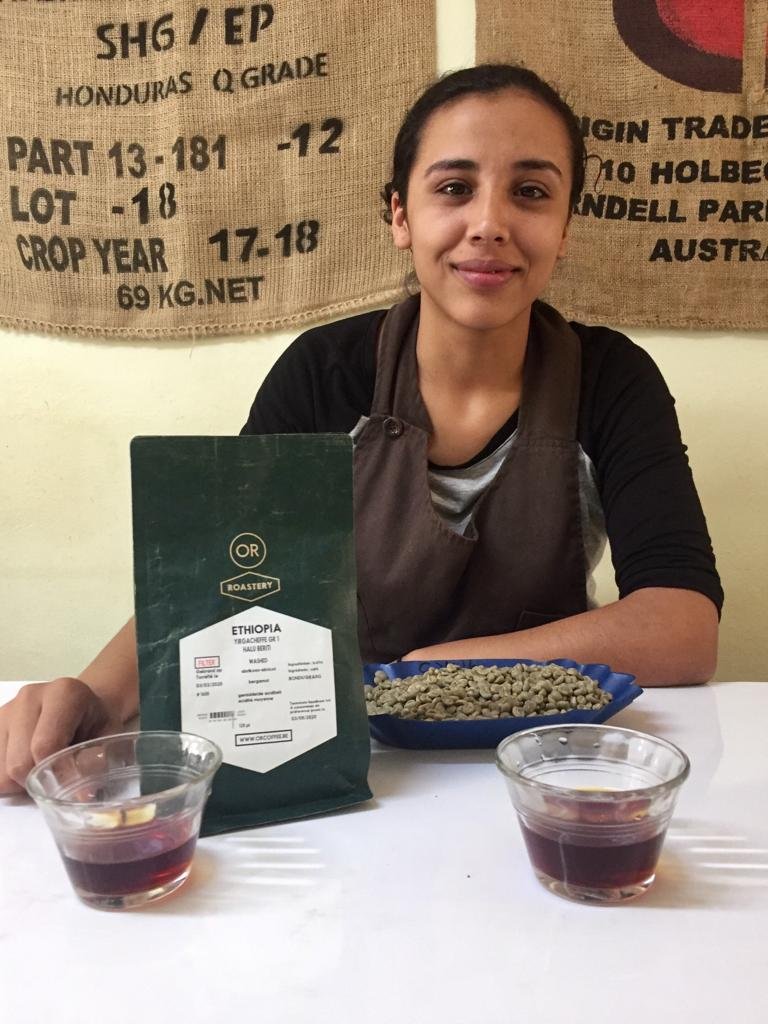
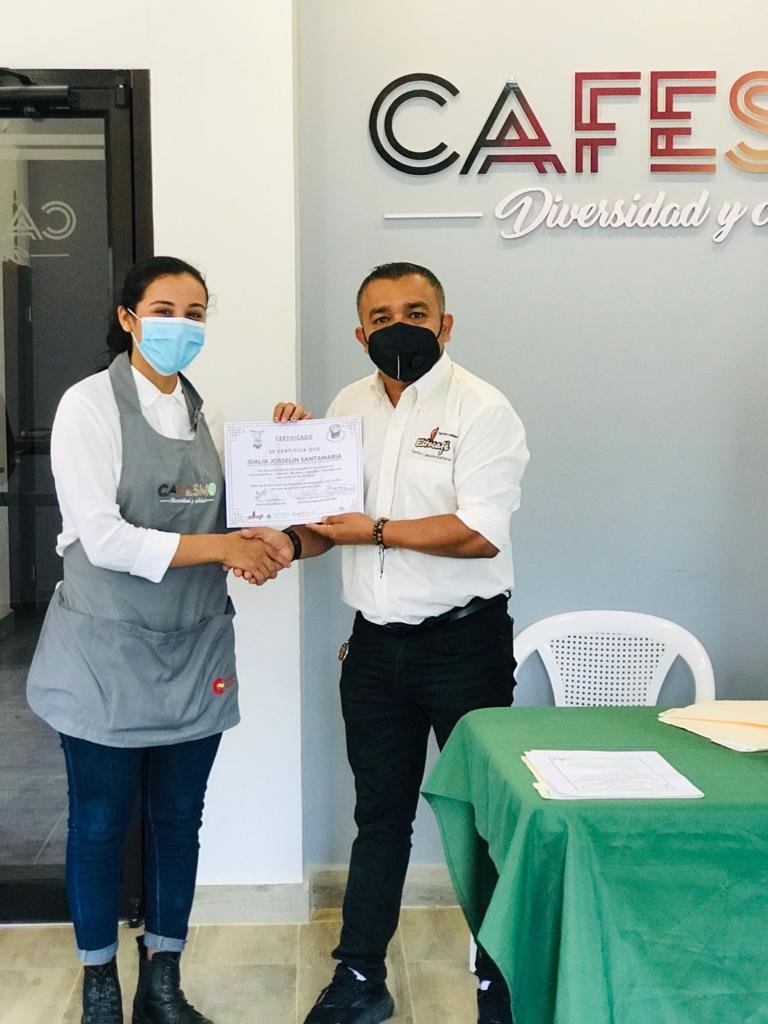
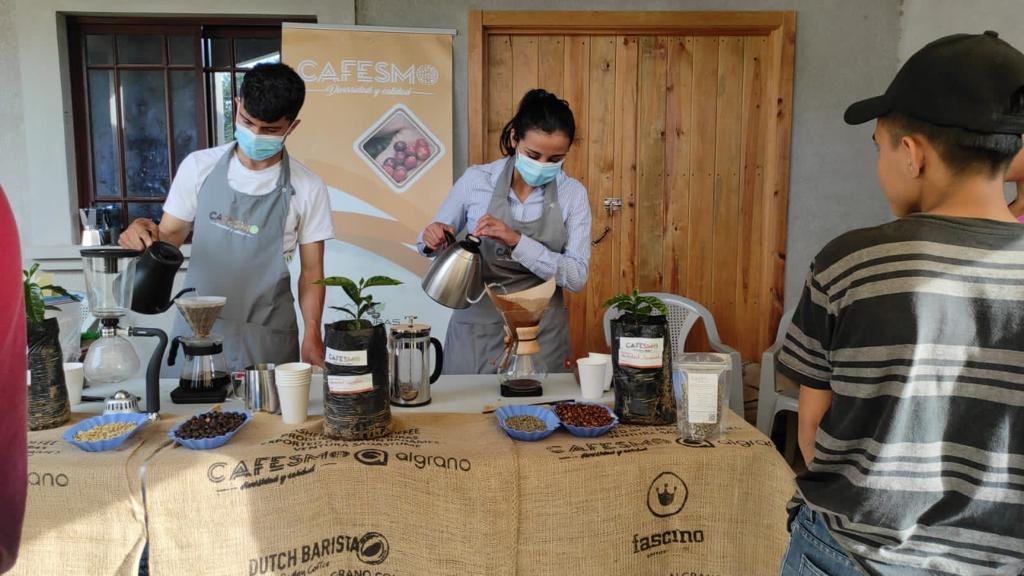
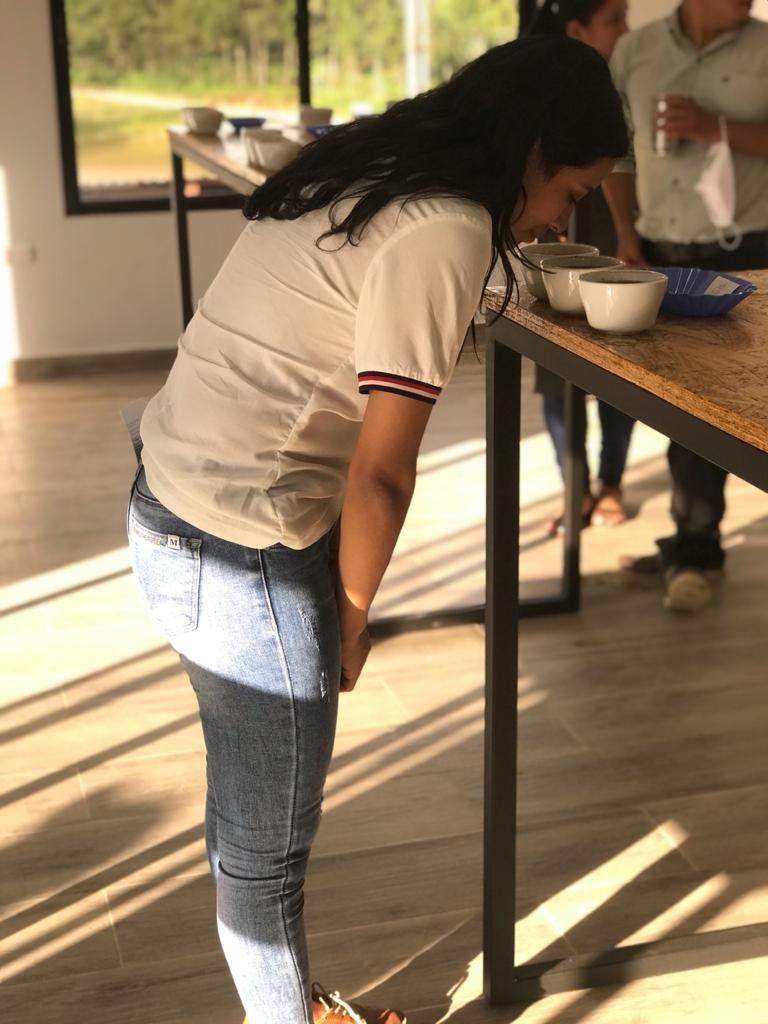
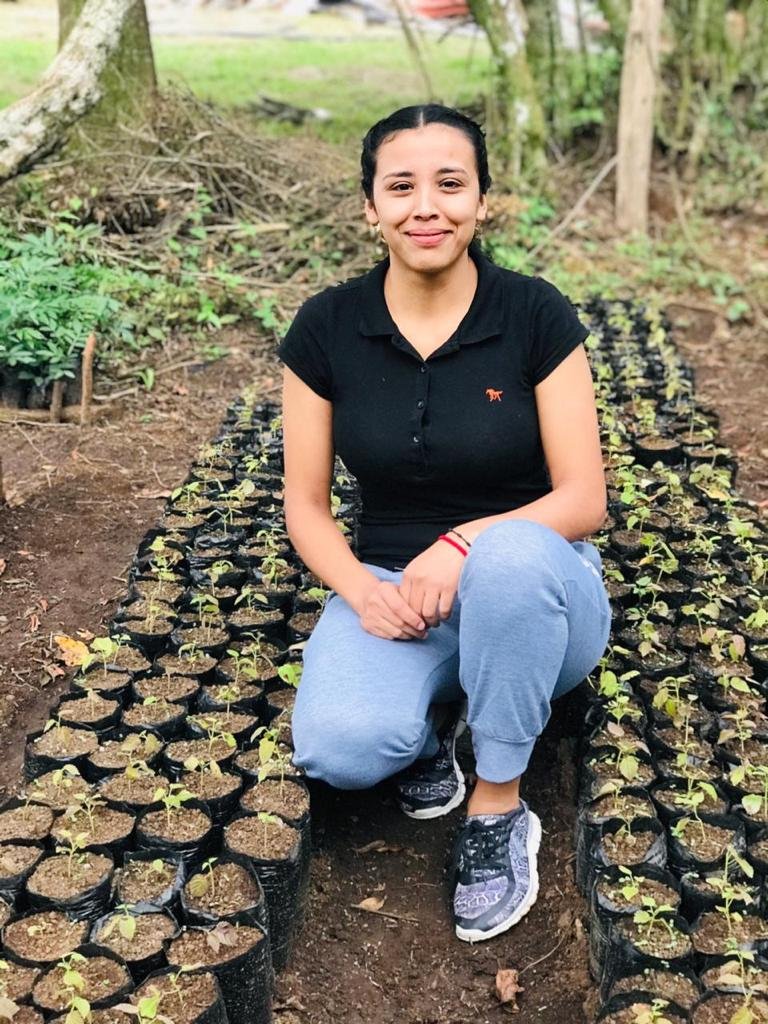
My roots are actually in El Salvador, but that goes back too many generations to remember. So, I’m 100% Honduran, and proud of it!
Like many of our farmers and most of my co-workers, I grew up in San Marcos, the town nearest to our Cafesmo facilities.
It’s a small but bustling town and just about everyone is either directly involved in coffee, or closely related to people who are. If it weren’t for coffee, our town would lose its ‘raison d’être’.
When I started working at Cafesmo, I was hired as the assistant manager of quality control. Among other things, it was my responsibility to keep track of traceability, collect and store samples, and – if I was lucky – participate in cupping sessions to help assess the quality of different lots.
At the beginning, I didn’t understand much. The jargon was weird, and sometimes I couldn’t share the enthusiasm for high end coffees, simply because I lacked the experience and wasn’t able to appreciate the complex profiles. But those cupping sessions triggered my fascination and I quickly became interested in learning more.
Thankfully, the Cafesmo Q-grader at that time, Sylvia Ventura, generously shared her knowledge and expertise with me. Soon, I was invited for all of our cupping sessions, and then Cafesmo offered me the opportunity to take the Q grader course at our national coffee institute. Since then, I’ve been learning relentlessly, and I have, of course, come to appreciate complex coffees, fermentation processes, and much more.
For instance, we are currently doing experiments with adding some yeast when we ferment our beans. I’m participating in a course given by Lucía Solis, the renowned expert, to learn how we can always further increase the stability, uniformity, and consistency of our lots.
Personally, I am a fan of carbonic maceration processes. It’s risky to prepare these coffees because they can ‘over-ferment’ and lose much of their qualities, but most of the time these micro-lots come out of the barrel in great shape and the reward is worth the risk: intensely fruity descriptors, often winey, complex structures, dazzling for your taste buds!
But of course, I’m not cupping coffees or doing experiments in our wet mill all day. Much of my work actually consists of administrative tasks: I must keep track of all our different lots. Quality, volume, defects, harvest date, farm, certificates, and so many other details. So, we have a system in place that automatically synchronizes all the information between myself, our bookkeeper, quality control department, technical assistance, and our general manager. Each lot gets a unique number and all the relevant information is kept and shared through this system.
I also keep physical samples of every coffee that we cup. On the one hand, because the coffee will evolve over time, so it is important to cup it again after a few weeks or even months. On the other hand, we want to keep a sample in case we receive feedback from a buyer that does not correspond with our own findings. This is rare, but when it happens, it’s vital that I can find the original coffee sample back that we had shared with the client.
I’ve never traveled to any of the countries where we sell our coffees, although I hope that I one day will. But some of our partners send a complimentary bag of the roasted coffee back to us, and they sometimes even add a bag from another origin, from an African or Asian country. Those are the greatest of presents, because in Honduras there aren’t many opportunities to try coffees from other continents.
What I do know very well, are all the aspects that are part of growing coffee at origin. Indeed, my father is a coffee farmer and I’ve been going to our farm since I was a child. He taught me the basics of coffee growing; I learned about picking, farm maintenance, cleaning, washing, and preparing coffee long before I was a grown woman!
And now I own my own small piece of land, where I grow coffee as well. My family helps me out a lot with that, because being a Q-grader at Cafesmo is a full time job, but I am responsible for the preparation of my own lots and of course also in charge of quality control.
In my spare time, I like to play soccer, I love reading books, even though it’s hard to find them in my hometown, and I sing in our local choir. So, I have many hobbies to keep me busy, although admittedly my job is my biggest hobby of all !

